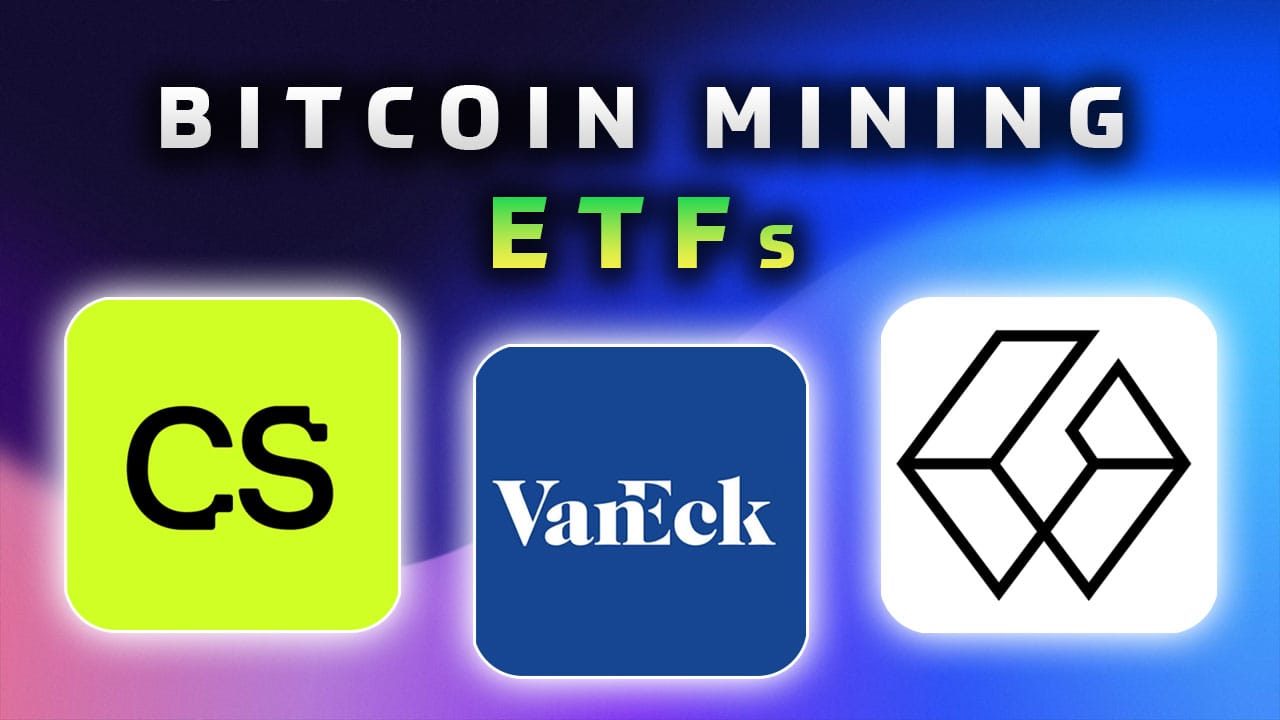Bitcoin
Maximize Bitcoin Gains Responsibly: Unveiling the Potentials of WGMI, MNRS, and NODE ETFs in Mining Investments

Bitcoin enthusiasts seeking to maximize gains from the cryptocurrency’s bullish trends now have alternatives that don’t involve the complexities of leverage or the risks associated with derivative trading. Exchange-Traded Funds (ETFs) such as WGMI, MNRS, and NODE are becoming increasingly popular among investors. These ETFs present a strategic approach to benefit from the rising opportunities by offering exposure specifically focused on Bitcoin mining. This strategy not only provides a level of diversification but also taps into the growing sector of Bitcoin mining, which is crucial in supporting the cryptocurrency’s infrastructure.
Bitcoin, the leading cryptocurrency, has often been associated with substantial volatility. This price fluctuation has been both a boon and a bane for investors. Traditionally, participating in this market through leverage and derivatives has been popular among sophisticated traders looking to amplify returns. However, these strategies come with added risk and complexity which may not suit all investors. ETFs like WGMI, MNRS, and NODE present themselves as viable alternatives, promising easier and potentially safer exposure to Bitcoin’s growth through the mining sector.
The primary advantage of Bitcoin mining ETFs is their inherent diversification. Rather than investing directly in Bitcoin, which can exhibit considerable price volatility, these funds spread investment across a range of companies involved in the Bitcoin mining industry. This includes firms involved in the production of mining hardware, those operating mining farms, and other relevant businesses. By doing so, they offer investors a more balanced risk profile, allowing participation in the sector without being directly subject to wild price swings of Bitcoin itself.
The performance of these ETFs is closely tied to the success of Bitcoin mining operations. As the demand and price of Bitcoin increase, more transactions are recorded on the blockchain, subsequently boosting the profitability of these mining operations. This has the potential to lead to higher returns for ETFs specializing in this area. Furthermore, the innovations in energy efficiency and technology within the mining sector continuously enhance the profitability metrics of these operations, making this an exciting domain for informed investors.
As Bitcoin has transitioned further into the mainstream financial arena, the infrastructure supporting it, including mining operations, has gained increasing attention from investors. The global move towards sustainable energy solutions is also making strides within this space, as more mining companies invest in renewable energy sources to power their operations. This not only sets a precedent for environmentally conscious investing but also potentially ensures lower operational costs in the long term, contributing positively to the valuation of ETFs with exposure to these businesses.
Investing in mining-focused ETFs like WGMI, MNRS, and NODE also alleviates the operational challenges and technical understanding required for individual Bitcoin mining investments. Direct involvement in mining requires substantial upfront costs for equipment, ongoing expenses for electricity, and technical know-how. By investing in these ETFs, individuals can indirectly benefit from mining activities without committing to the complexities and risks associated with operating mining hardware themselves.
Institutional investors are also showing increased interest in these ETFs as they offer a regulated and familiar vehicle to gain exposure to Bitcoin. By choosing ETFs rather than direct investments in cryptocurrency or complex derivative products, institutions can more comfortably adhere to regulatory guidelines while still participating in the crypto sector’s potential upside. This shift is further bolstered by the increasing legitimacy of Bitcoin as an asset class within global financial markets, raising the profile of associated investment products.
It is important to consider the dynamically changing landscape of regulatory frameworks around cryptocurrency investments. ETFs, being regulated financial products, offer a more reliable compliance pathway compared to individual cryptocurrency holdings. Investors still need to conduct thorough research and due diligence, especially monitoring market trends, technological advancements, and regulation changes impacting the ETFs and the wider crypto ecosystem.
In summary, Bitcoin mining ETFs represent a significant evolution in opportunities for both individual and institutional investors seeking to capitalize on Bitcoin’s growth potential. They provide a streamlined means to benefit from the cryptocurrency’s gains through an indirect, diversified, and often more risk-averse route compared to direct investments in Bitcoin or derivative instruments. As the sector continues to evolve, these ETFs will likely play an increasingly pivotal role in investment portfolios aiming to include cryptocurrency exposure.
-

 Press Releases2 years ago
Press Releases2 years agoGaming Technologies of the New Time!
-

 Altcoins12 months ago
Altcoins12 months agoBitcoin Declines Below $80K: deVere CEO Nigel Green Remains Bullish on Long-Term Outlook Following Strategic U.S. Bitcoin Reserve Announcement
-

 Altcoins11 months ago
Altcoins11 months agoCalls for Enhanced Discussion on Bitcoin as Brazil’s Reserve Asset: A Move Towards ‘Internet’s Gold’
-

 Bitcoin1 year ago
Bitcoin1 year agoBitcoin Surges Past $64K as SEI and POPCAT Lead Daily Crypto Gains on September 25
-

 Press Releases2 years ago
Press Releases2 years agoEvo Exchange: Redefining the Decentralized Exchange Landscape
-

 Bitcoin7 months ago
Bitcoin7 months agoGrayscale Investments Submits Draft Registration for IPO, Aiming for Public Trading in U.S.
-

 Press Releases1 year ago
Press Releases1 year agoCODE, a Newly Born Project Brings Decentralization Back to the Main Menu
-

 Bitcoin7 months ago
Bitcoin7 months agoPeter Schiff Critiques New Crypto Legislation, Claims Bitcoin (BTC) Gains are Short-Lived




